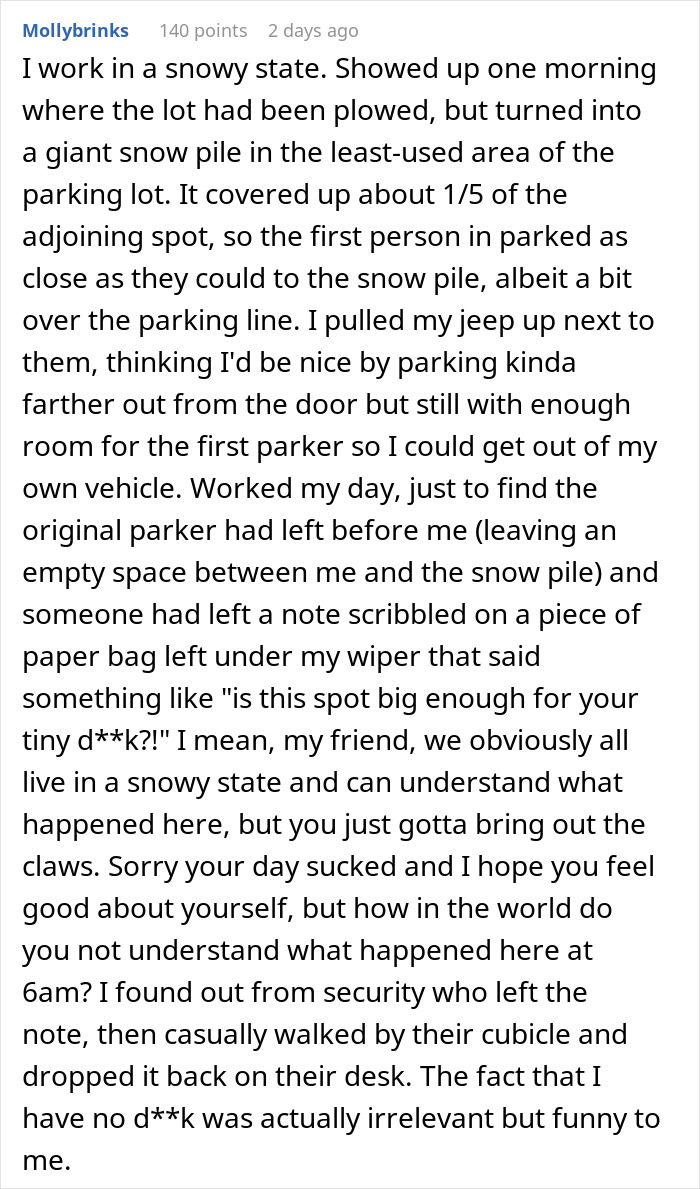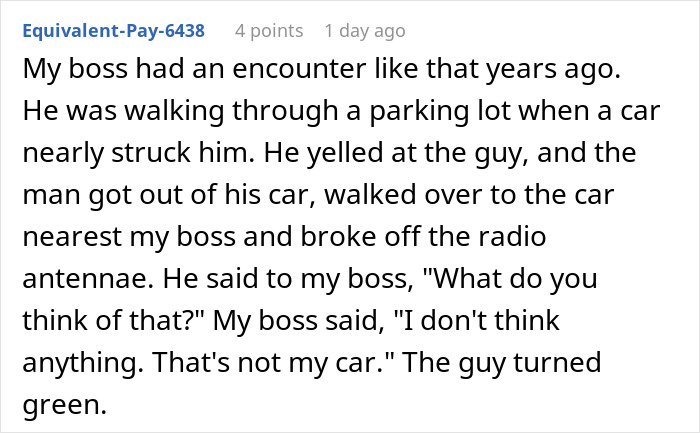Parking can really sour your day. Finding a blocked car is more than inconvenient; it’s frustrating. Especially when you’re in a hurry. It angers people so much that, for example, one in three drivers in the UK admits they have written a passive-aggressive note to neighbors about it and left it on their vehicle. Some of these cases even end up in heated arguments.
Recently, redditor u/2ndbreakfastfan was drawn into such a quarrel without even owning a car. After leaving the grocery store and making his way back home, a lady approached him with accusations of a badly parked truck, even though it wasn’t his. Nonetheless, he stood his ground and refused to move it. As a result, she got even more frustrated and started raising her voice.
Irresponsible parking often results in frustration

Image credits: Mike Jones / Pexels (not the actual photo)
But the OP was drawn into an argument about badly parked truck without even owning one
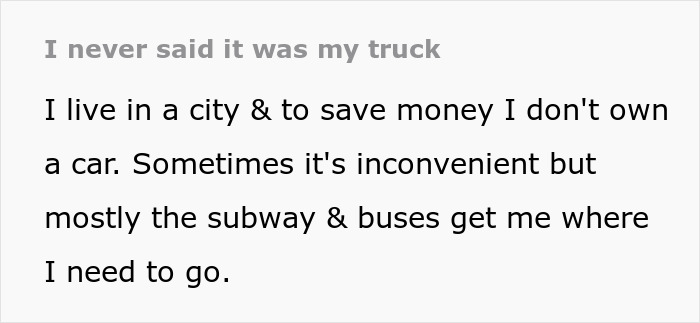
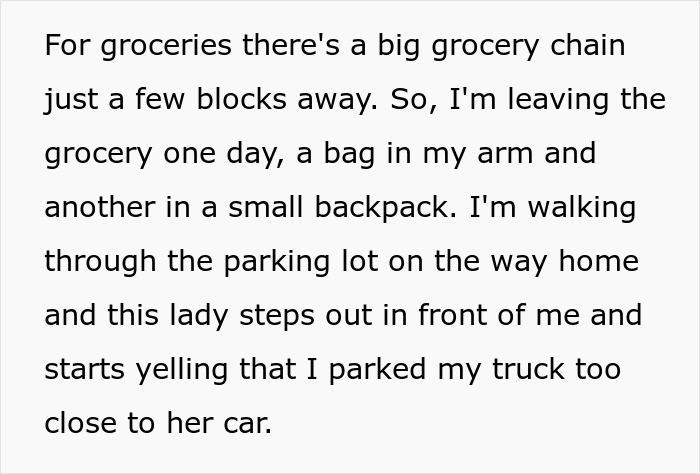
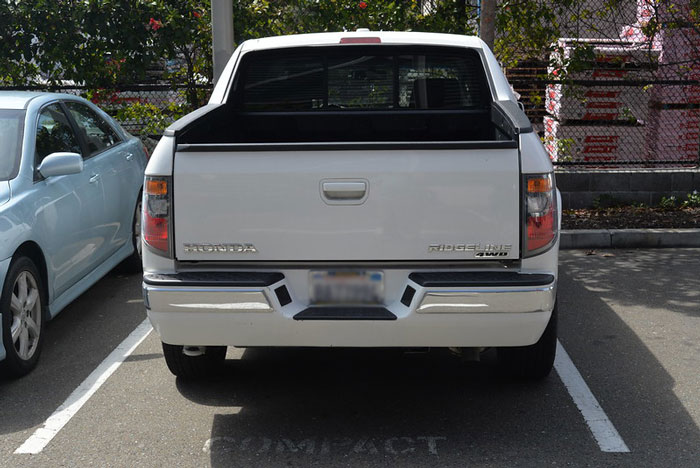
Image credits: Paul Sullivan / Flickr (not the actual photo)
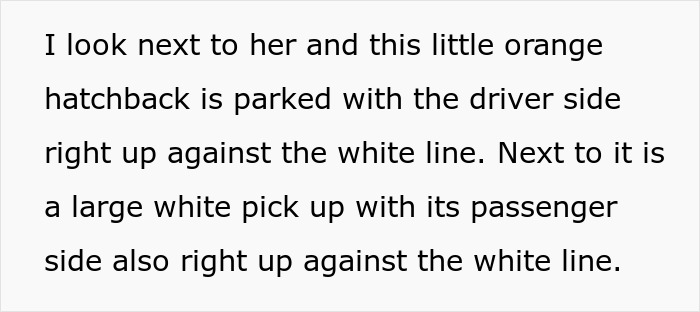
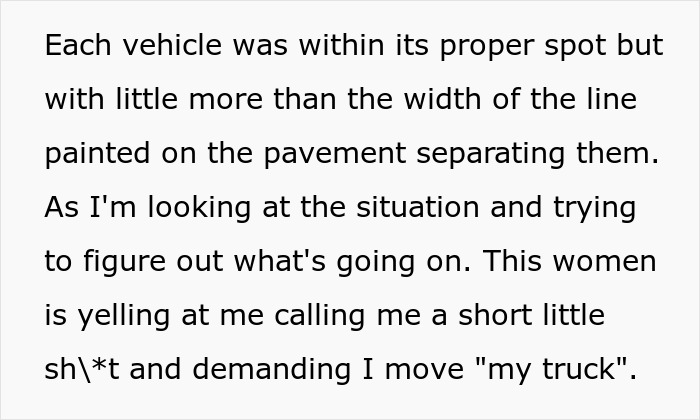

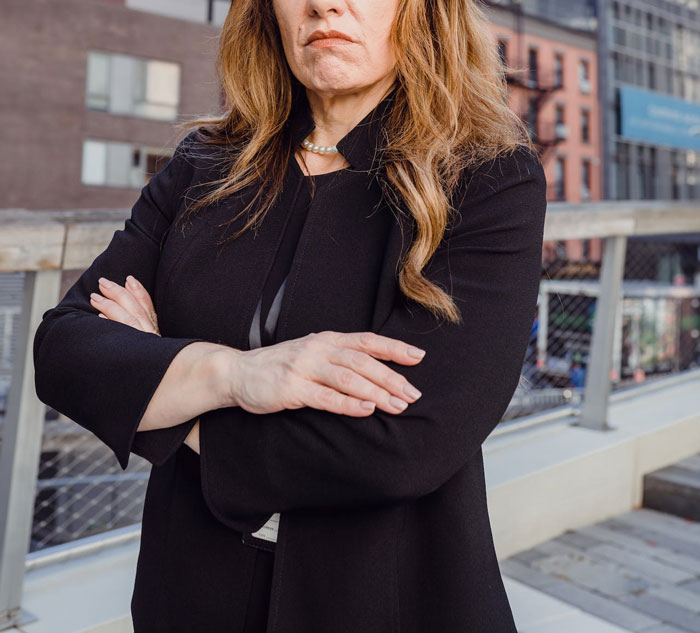
Image credits: Mizuno K / Pexels (not the actual photo)
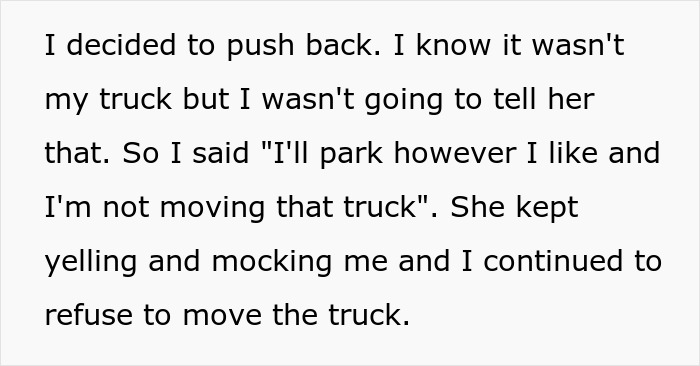
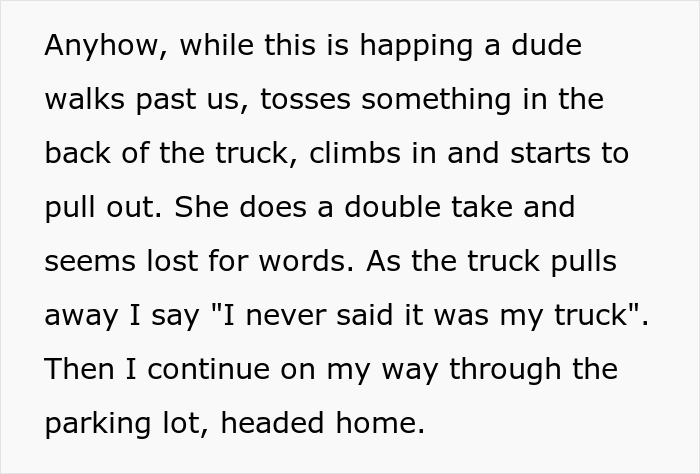
Image credits: 2ndbreakfastfan
Is parking rage a part of a bigger problem?
Psychologists say that parking lot fights are territorial disputes. There’s a self-centered mode some can enter, making them feel like their actions don’t have consequences. People also tend to feel anonymous in parking lots, which can make them feel more impulsive if they feel like nobody’s going to catch them. And, of course, that’s rarely the case.
Dr. James Leon, the author of “Road Rage and Aggressive Driving,” sees it as a person’s loss of control of emotions in public spaces. When we get challenged in parking lots by someone else’s actions, we feel enraged. Many people lack the skills to cope with this so they express it through aggressive or violent behavior.
However, parking policy expert Donald Shoup puts it on the economy. “Free” street parking in crowded areas invites residents to defend their parking spots in unusual ways, such as putting out lawn chairs, keeping the car’s engine running, or bursting into violence. It appears to be a part of a bigger problem where countries mismanage parking.
We’re used to looking at packed car parks and saying, “Well, there’s not enough of them.” At some point in the 20th century, authorities collectively decided that it’s the culprit of our traffic problems, and the way to fix it is to create more of it. In fact, there’s far more parking than we need. For example, in the US, there are at least four parking spaces for one car, meaning that only 25% are full at any given time.
It even affects our housing supply and costs. Jurisdictions in the US have parking requirements for new housing, which places a constraint on what can be built. What gets constructed contains a lot of car space and is included in the cost of an apartment. For example, in California and Arizona, it adds tens of thousands of dollars onto every new housing unit, whether you drive a car or not. Parking is such a fixation that projects that don’t have enough of it are opposed, reducing the number of accommodations built.
Solving the issue of parking
There may be places where there isn’t enough of it, but the solution is rarely to create more but rather to control the demand by sharing, pricing, and promoting where it is.
Henry Grabar, writer of “Paved Paradise: How Parking Explains the World,” suggests that when somebody wants to open, for example, a new restaurant or a building, instead of estimating the number of parking spaces they would need, they could think about the existing ones and how they could be repurposed. An office building could be used at night for residential parking or a dental clinic for the nearby restaurant as well.
The other solution is pricing. If there’s a higher fee, the people who really need to park there will remain, while others who keep their cars unnecessarily will leave, making more spots available. It might seem like an absurd expense, but some people drive thousands of miles every day just looking for a space to leave their car in, which may cost even more than the taxed parking. In addition, time is often money, so taking longer to find a spot or leaving 20 minutes early may cost someone more than paying for a parking spot.
Additionally, finding good parking mostly depends on local knowledge. If you aren’t familiar with the area and want to leave your car, you should know how much it costs and where you can do it. Grabar believes that this should be clear at every highway or exit. Extra signs indicating parking could also eliminate the stress of finding one, as you’ll know exactly where it is.
It’s clear that parking a car can evoke rage in a lot of humans. So the next time you can’t find a spot or see someone’s car left in uncanny spaces, don’t be like the lady in the story and remember that sometimes it’s not even their fault.
Some commenters had various reactions, while others shared similar stories


